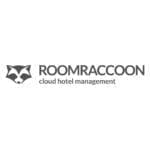 A common misconception about implementing a Revenue Management Software (RMS) is that it’s seen as a cost and not an investment. Implementing an RMS should be viewed as a strategic investment in a hotel’s long-term success rather than a mere cost.
A common misconception about implementing a Revenue Management Software (RMS) is that it’s seen as a cost and not an investment. Implementing an RMS should be viewed as a strategic investment in a hotel’s long-term success rather than a mere cost.
Let us tell you why:
- Increased Revenue: A well-implemented revenue management system has the potential to significantly increase a hotel’s revenue. By optimizing pricing, inventory, and distribution, the system will lead to higher occupancy rates and a higher revenue per available room (RevPAR), At the end of the day, the initial investment pales in comparison to the substantial gains it yields.
- Cost Savings: A revenue management system can help reduce costs by improving operational efficiency. With better forecasting, hotels can align staffing levels with demand, leading to cost savings in labor. Additionally, automated processes reduce the need for manual data analysis and adjustments, saving time and resources.
- Competitive Advantage: In a highly competitive hospitality industry, a revenue management system can give a hotel a competitive edge. It enables the hotel to respond more effectively to market changes, analyze competitors’ strategies, and make real-time adjustments to stay ahead.
- Long-Term Value: A revenue management system provides ongoing benefits. It’s not a one-time expense; it’s a tool that continues to deliver value by optimizing revenue over the long term. The increased revenue and cost savings can provide a substantial return on investment (ROI) over time.
- Data-Driven Decision-Making: A revenue management system provides valuable data and insights that can inform strategic decisions across the hotel. This data-driven approach can lead to better marketing, pricing, and operational strategies, resulting in improved overall performance.
- Improved Guest Satisfaction: When a revenue management system optimizes pricing and availability, it helps ensure that guests find rooms at fair prices. This can enhance guest satisfaction, leading to repeat business, positive reviews, and customer loyalty.
- Adaptability to Market Changes: The hospitality industry is dynamic, with market conditions and customer preferences constantly evolving. A revenue management system helps hotels adapt to these changes by providing real-time analytics and recommendations, allowing the hotel to adjust its strategies accordingly.
- Integration with Other Systems: Many revenue management systems can integrate with other hotel management and distribution systems, creating a more streamlined and efficient operation. This integration can lead to further cost savings and operational improvements.
In conclusion, while there are initial costs associated with implementing a revenue management system, it’s important to recognize the significant potential for increased revenue, cost savings, and competitive advantages that such a system brings. It should be viewed as a strategic investment in the hotel’s long-term success rather than a mere cost.




















